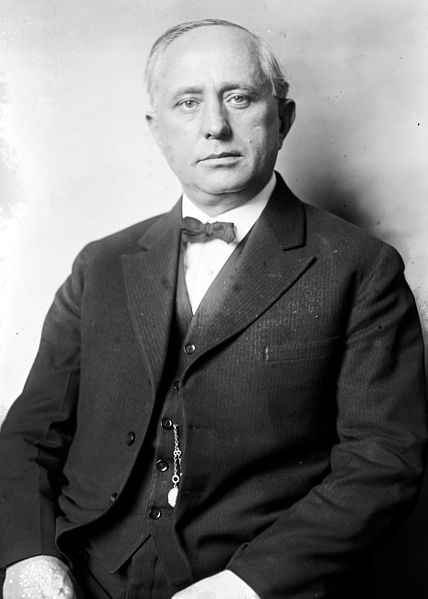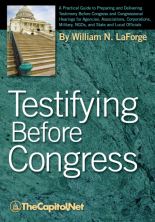From the Congressional Glossary – Including Legislative and Budget Terms
Ramseyer Rule / Cordon Rule

A comparative section in contrasting typefaces must be included in committee reports. This comparative section shows the text of a statute, or a part thereof, that is proposed to be amended or repealed. This section is usually prepared by each chamber’s Office of Legislative Counsel. In House reports, this comparative section is eponymously called a “Ramseyer,” and in Senate reports, a “Cordon.” These sections are named, respectively, for Representative Christian W. Ramseyer (R-IA, 1915–1933), and Senator Guy Cordon (R-OR, 1944–1955).
House rule that requires a committee report to show changes the reported measure would make in current law.
The Ramseyer rule provides that whenever a committee reports a bill or joint resolution repealing or amending any statute or part thereof, the committee report is to include the text of the statute or part thereof to be repealed, as well as a comparative print showing the proposed omissions and insertions by stricken through type and italics, parallel columns, or other appropriate typographical devices. The purpose of the Ramseyer rule is to inform members of any changes in existing law to occur through proposed legislation. The rule was adopted by the House on Jan. 28, 1929.
A point of order based on the rule must be made when the bill is called up in the House and before the House resolves itself into the Committee of the Whole. The point of order comes too late after the House has resolved itself into the Committee of the Whole for the purpose of consideration of the measure and debate has begun. Compliance with the Ramseyer rule may be waived by unanimous consent or by special rule. This can be accomplished either by a general waiver of all points of order against consideration of the bill, or by an express waiver of the provisions of the Ramseyer rule.
The rule is commonly known as the “Ramseyer rule” in honor of its sponsor, Mr. Christian W. Ramseyer, of Iowa (R-IA), who served in the House from 1915 to 1933.
The Ramseyer Rule, Deschler’s Precedents, Volume 4, Ch. 17, Section 60
Also see Committee Print; § 6.60 Committee Reports, in Congressional Deskbook.
More
- House Rule XIII – Calendars and Committee Reports
- “How Bills Amend Statutes,” CRS Report RS20617 (4-page PDF
 )
) - “Senate Committee Reports: Required Contents,” CRS Report 98-305 (3-page PDF
 )
) - “House Rules Affecting Committees,” CRS Report 97-357 (35-page PDF
 )
) - “The Budget Reconciliation Process: House and Senate Procedures,” CRS Report RL33030 (122-page PDF
 )
) - “House Committee Markups: Manual of Procedures and Procedural Strategies,” CRS Report R41083 (220-page PDF
 )
) - “Appropriations Report Language: Overview of Development, Components, and Issues for Congress,” CRS Report R44124 (37-page PDF
 )
) - “Senate Rules Affecting Committees,” CRS Report 98-311 (13-page PDF
 )
) - “Senate Standing Committees’ Rules on Legislative Activities and Executive Business: Analysis for the 113th Congress,” CRS Report R43799 (97-page PDF
 )
)
Courses
- Congressional Operations Briefing – Capitol Hill Workshop
- Drafting Federal Legislation and Amendments
- Writing for Government and Business: Critical Thinking and Writing
- Custom, On-Site Training
- Preparing and Delivering Congressional Testimony and Oral Presentations, a Five-Course series on CD
- Congress, the Legislative Process, and the Fundamentals of Lawmaking Series, a Nine-Course series on CD
Publications

Testifying Before Congress

Pocket Constitution

Citizen’s Handbook to Influencing Elected Officials: A Guide for Citizen Lobbyists and Grassroots Advocates

Congressional Procedure
CongressionalGlossary.com, from TheCapitol.Net
For more than 40 years, TheCapitol.Net and its predecessor, Congressional Quarterly Executive Conferences, have been teaching professionals from government, military, business, and NGOs about the dynamics and operations of the legislative and executive branches and how to work with them.
Our custom on-site and online training, publications, and audio courses include congressional operations, legislative and budget process, communication and advocacy, media and public relations, testifying before Congress, research skills, legislative drafting, critical thinking and writing, and more.
TheCapitol.Net is on the GSA Schedule, MAS, for custom on-site and online training. GSA Contract GS02F0192X
TheCapitol.Net is now owned by the Sunwater Institute.
Teaching how Washington and Congress work ™

